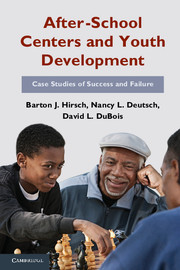Book contents
- Frontmatter
- Contents
- Figure and Tables
- Preface
- Introduction
- Midwest Center
- 2 Pockets of Excellence
- 3 Pocahontas Joins the Tribe
- 4 Bill: The Pros and Cons of Being One of the Guys
- 5 Putting It All Together: Midwest Center
- North River Center
- West River Center
- Conclusion
- Appendix Data Sources
- References
- Index
4 - Bill: The Pros and Cons of Being One of the Guys
Published online by Cambridge University Press: 05 June 2012
- Frontmatter
- Contents
- Figure and Tables
- Preface
- Introduction
- Midwest Center
- 2 Pockets of Excellence
- 3 Pocahontas Joins the Tribe
- 4 Bill: The Pros and Cons of Being One of the Guys
- 5 Putting It All Together: Midwest Center
- North River Center
- West River Center
- Conclusion
- Appendix Data Sources
- References
- Index
Summary
Like Pocahontas, Bill is a difficult character to miss. On the one hand, he is quintessentially “one of the guys,” shooting hoops, playing ping-pong, and tossing around the term “gay” as his insult of choice. He can be loud and disruptive, with a history of school trouble for both fighting and academic failure. Yet closer observation reveals an intelligent boy with an introspective tendency and interests in social issues, chess, and history. The Midwest after-school center serves as a safe space for Bill, a place of moratorium where he escapes the pressure of gang activity present in his school and neighborhood. His involvement in the chess club allows him to shine and develop relationships with staff. But Bill’s story is also one of missed opportunity. He would have benefited from mentoring around his grades and school conflicts. Bill is not able to fully connect with the resources he needs because his demeanor feeds into stereotypes of male self-sufficiency. His one-of-the-guys persona winds up hurting him, hiding his need for the type of interpersonal support that Pocahontas was so successful in accessing. Bill’s story illustrates a hidden danger of urban masculinity, especially in a setting such as Midwest, which is not oriented to proactive intervention.
- Type
- Chapter
- Information
- After-School Centers and Youth DevelopmentCase Studies of Success and Failure, pp. 92 - 120Publisher: Cambridge University PressPrint publication year: 2011

